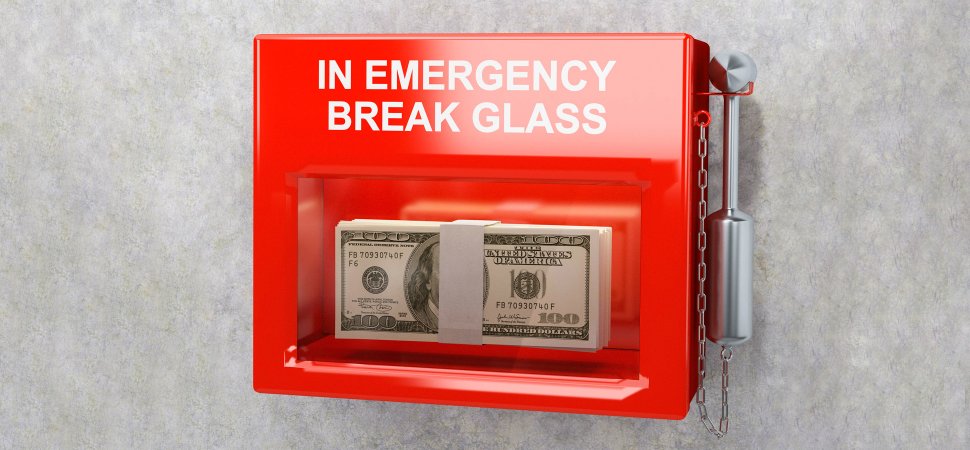Impact of base rate reduction
April 9, 2015Thursday Trivia – The wishful need of GUARANTEED returns
June 18, 2015
Emergency fund
Simply understanding, emergency or contingency fund is a fund that is set aside, to be used in an emergency, such as the loss of a job, an illness or a major expense. The purpose of the fund is to improve financial security and independence by using it to meet emergency expenses. As a result it will also help reduce the need to use high interest debt, such as credit cards, as a last resort.
In life you may face a lot of unplanned expenses. Here are various situations where one might face a big onetime expense and having an emergency fund could be very useful
- Hospitalization due to illness or accident. Even if you have an adequate health insurance (if you don’t, take one immediately) having an emergency fund is useful. You might need money to pay initial deposits in hospitals or pay a part of claim money not honored by insurance company
- Unexpected break down of car – Having a car demands you to increase the quantum of money to keep for emergency fund.
- Travelling needs – An emergency visit to your hometown or any other unplanned travel
- Home repairs – A costly affair which may require huge cash outflow. This also includes break down in any white goods like A/c or any other major appliance
As you would note that these are pretty common incidents that happen around us, but they seem to happen very rarely with us. Planning for the unplanned is what Emergency fund is all about.
Knowing how much is enough
We advise that you should keep at least 3 – 6 months of our monthly expenses as emergency funds. Consider following factors before finalizing the amount
- Assets owned by you – If you have various assets that are used regularly and may hamper your daily routine in case of breakdown, then you should have a higher quantum of emergency fund.
- Working couple – If both the members of the family are working then the individual contribution to emergency fund requirement may be lesser as compared to a couple where only one spouse is earning
- Committed outflows – Consider including committed monthly outflows in addition to monthly expenses. For e.g. Insurance Premium, EMI on loans and credit card dues
Allocating money for Emergency Funds
As discussed one would not want to access their emergency funds very frequently, but when in need the same should be accessible immediately. Hence the funds should have high liquidity and accessibility, preferably with a horizon of immediate to 24 hours. Also funds should not be subjected to any risk or volatility. In the view of above factors it’s advised to hold the funds in following three forms
- Hard cash at home – This is most accessible and liquid form of holding the funds. Also it may come handy in times of natural calamities when due to power failures ATMs stop working
- Savings account – Where money can be withdrawn from ATM, this helps you earn some interest on money and its accessible readily. You can also explore the idea of having a separate savings account for this purpose so that you are not tempted to spend seeing money in your regular account
- Fixed Deposits – Invest in deposits which can be liquidated online. The only reason is to earn a relatively better interest by compromising on liquidity for few hours.
Building your emergency fund
After allocating money for risk cover in form of health insurance and term insurance, your next priority should be to build an emergency fund. Following steps should be taken to build your emergency fund
- As per the above determine the amount you want in emergency fund and the allocation you want to create for the same
- Start contributing the total monthly savings towards this allocation. You might experience an opportunity lost to allocate money in low/nil yield avenues, but it’s worth doing the same. In my advice don’t start allocation for your long term investments and emergency fund simultaneously. First reach the desired allocation for emergency fund and then start investing for other goals
- If you require more than 3 months to reach desired allocation of emergency fund, consider automating the process. Schedule regular monthly payments to the separate emergency fund savings account or fixed deposit to reach the goal
- Another small way of building the cash allocation is the traditional piggy bank savings. Ensure that all the family members contribute a fixed daily amount and all the spare change to the kitty. This would help grow the cash allocation every day.
Summary
An adequate emergency fund can be the reason between financial failure and financial success. Not only must you develop discipline to accumulate one, but more importantly have a discipline to not splurge the money as it is readily available. An emergency fund will prepare you for unexpected setbacks and reduce your dependence on borrowing money.
Carefully examine your expenses and develop an emergency fund goal, see how much you can save each month. Make a plan to build up an emergency fund and decide how you want it allocated.


